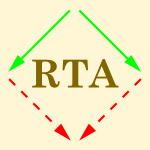56 papers:
 CHI-2014-LohseRPKE #gesture #performance
CHI-2014-LohseRPKE #gesture #performance- Robot gestures make difficult tasks easier: the impact of gestures on perceived workload and task performance (ML, RR, JGP, DEK, VE), pp. 1459–1466.
 DRR-2013-AzawiLB #documentation #layout
DRR-2013-AzawiLB #documentation #layout- WFST-based ground truth alignment for difficult historical documents with text modification and layout variations (MIAAA, ML, TMB).
 ESEC-FSE-2013-Terekhov
ESEC-FSE-2013-Terekhov- Good technology makes the difficult task easy (AT), pp. 683–686.
 DAC-2012-LinHFHM #debugging #detection #effectiveness #validation
DAC-2012-LinHFHM #debugging #detection #effectiveness #validation- Quick detection of difficult bugs for effective post-silicon validation (DL, TH, FF, NH, SM), pp. 561–566.
 CSMR-2012-TollO #game studies #question #why
CSMR-2012-TollO #game studies #question #why- Why is Unit-testing in Computer Games Difficult? (DT, TO), pp. 373–378.
 CIKM-2012-JatowtT12a #analysis #comparative #readability #wiki
CIKM-2012-JatowtT12a #analysis #comparative #readability #wiki- Is wikipedia too difficult?: comparative analysis of readability of wikipedia, simple wikipedia and britannica (AJ, KT), pp. 2607–2610.
 ECIR-2012-DiriyeKH #interactive #query #web
ECIR-2012-DiriyeKH #interactive #query #web- Interactive Search Support for Difficult Web Queries (AD, GK, JH), pp. 37–49.
 SIGIR-2012-LiuSCNW #adaptation #query
SIGIR-2012-LiuSCNW #adaptation #query- Adaptive query suggestion for difficult queries (YL, RS, YC, JYN, JRW), pp. 15–24.
 ICALP-v1-2011-BulteauFR #sorting
ICALP-v1-2011-BulteauFR #sorting- Sorting by Transpositions Is Difficult (LB, GF, IR), pp. 654–665.
 CIKM-2011-KarimzadehganZ #documentation #modelling #query #retrieval
CIKM-2011-KarimzadehganZ #documentation #modelling #query #retrieval- Improving retrieval accuracy of difficult queries through generalizing negative document language models (MK, CZ), pp. 27–36.
 CIKM-2011-KotovZ #feedback #interactive #query
CIKM-2011-KotovZ #feedback #interactive #query- Interactive sense feedback for difficult queries (AK, CZ), pp. 163–172.
 CIKM-2011-TanevaKW #image
CIKM-2011-TanevaKW #image- Finding images of difficult entities in the long tail (BT, MK, GW), pp. 189–194.
 ECIR-2011-ElsweilerBR #case study #email #what
ECIR-2011-ElsweilerBR #case study #email #what- What Makes Re-finding Information Difficult? A Study of Email Re-finding (DE, MB, IR), pp. 568–579.
 ECIR-2011-TrieschniggH #question
ECIR-2011-TrieschniggH #question- Classic Children’s Literature — Difficult to Read? (DT, CH), pp. 691–694.
 RecSys-2011-SparlingS #how #named #question #rating
RecSys-2011-SparlingS #how #named #question #rating- Rating: how difficult is it? (EIS, SS), pp. 149–156.
 CADE-2011-Ranta #logic #what
CADE-2011-Ranta #logic #what- Translating between Language and Logic: What Is Easy and What Is Difficult (AR), pp. 5–25.
 CHI-2010-AulaKG #behaviour #how #question
CHI-2010-AulaKG #behaviour #how #question- How does search behavior change as search becomes more difficult? (AA, RMK, ZG), pp. 35–44.
 ICDAR-2009-KaeL #learning #on the fly #problem
ICDAR-2009-KaeL #learning #on the fly #problem- Learning on the Fly: Font-Free Approaches to Difficult OCR Problems (AK, EGLM), pp. 571–575.
 CIKM-2009-SunLL #case study #category theory #classification #performance #predict #what
CIKM-2009-SunLL #case study #category theory #classification #performance #predict #what- What makes categories difficult to classify?: a study on predicting classification performance for categories (AS, EPL, YL), pp. 1891–1894.
 CIKM-2008-XuA #feedback #query
CIKM-2008-XuA #feedback #query- Active relevance feedback for difficult queries (ZX, RA), pp. 459–468.
 ECIR-2008-Mizzaro #evaluation #information retrieval #question
ECIR-2008-Mizzaro #evaluation #information retrieval #question- The Good, the Bad, the Difficult, and the Easy: Something Wrong with Information Retrieval Evaluation? (SM), pp. 642–646.
 RTA-2008-UrbanZ #proving
RTA-2008-UrbanZ #proving- Revisiting Cut-Elimination: One Difficult Proof Is Really a Proof (CU, BZ), pp. 409–424.
 CHI-2007-HuWNMI #testing #usability
CHI-2007-HuWNMI #testing #usability- Context & usability testing: user-modeled information presentation in easy and difficult driving conditions (JH, AW, CN, JDM, RI), pp. 1343–1346.
 HCI-IDU-2007-Karjalainen #analysis #why
HCI-IDU-2007-Karjalainen #analysis #why- Why It Is Difficult to Use a Simple Device: An Analysis of a Room Thermostat (SK), pp. 544–548.
 CIKM-2007-WangFZ #feedback #query #retrieval #using
CIKM-2007-WangFZ #feedback #query #retrieval #using- Improve retrieval accuracy for difficult queries using negative feedback (XW, HF, CZ), pp. 991–994.
 SIGIR-2007-FuKS #collaboration #query #retrieval #topic #using
SIGIR-2007-FuKS #collaboration #query #retrieval #topic #using- Using collaborative queries to improve retrieval for difficult topics (XF, DK, CS), pp. 879–880.
 DATE-2006-KimH
DATE-2006-KimH- Associative skew clock routing for difficult instances (MSK, JH), pp. 762–767.
 SIGIR-2006-CarmelYDP #query #question #what
SIGIR-2006-CarmelYDP #query #question #what- What makes a query difficult? (DC, EYT, AD, DP), pp. 390–397.
 CAV-2006-KrcalY #automaton #communication #verification
CAV-2006-KrcalY #automaton #communication #verification- Communicating Timed Automata: The More Synchronous, the More Difficult to Verify (PK, WY), pp. 249–262.
 ITiCSE-2005-Massarelli
ITiCSE-2005-Massarelli- The difficult art of pruning in favour of creative thinking (RM), p. 368.
 ICML-2005-RosellHRP #learning #why
ICML-2005-RosellHRP #learning #why- Why skewing works: learning difficult Boolean functions with greedy tree learners (BR, LH, SR, DP), pp. 728–735.
 ICEIS-v3-2004-MaiLB #adaptation #design
ICEIS-v3-2004-MaiLB #adaptation #design- Difficult Issues in Designing Adaptive Object Model Systems (YM, JL, GB), pp. 295–302.
 DAC-2003-LuWCMH #case study #correlation #industrial
DAC-2003-LuWCMH #case study #correlation #industrial- A signal correlation guided ATPG solver and its applications for solving difficult industrial cases (FL, LCW, KTC, JM, ZH), pp. 436–441.
 ICDAR-2003-LeedhamYTTM #algorithm #comparison #documentation #image #segmentation
ICDAR-2003-LeedhamYTTM #algorithm #comparison #documentation #image #segmentation- Comparison of Some Thresholding Algorithms for Text/Background Segmentation in Difficult Document Images (GL, YC, KT, JHNT, LM), p. 859–?.
 CHI-2003-YamauchiWB
CHI-2003-YamauchiWB- Information use of service technicians in difficult cases (YY, JW, DGB), pp. 81–88.
 SIGIR-2003-HuBZ #analysis #fault #topic
SIGIR-2003-HuBZ #analysis #fault #topic- Error analysis of difficult TREC topics (XH, SB, CZ), pp. 407–408.
 ICSE-2003-NuseibehKF #exclamation #named
ICSE-2003-NuseibehKF #exclamation #named- ViewPoints: meaningful relationships are difficult! (BN, JK, AF), pp. 676–683.
 DAC-2002-AloulRMS #satisfiability #symmetry
DAC-2002-AloulRMS #satisfiability #symmetry- Solving difficult SAT instances in the presence of symmetry (FAA, AR, ILM, KAS), pp. 731–736.
 ITiCSE-2002-HabermanA #recursion #student #why
ITiCSE-2002-HabermanA #recursion #student #why- The case of base cases: why are they so difficult to recognize? student difficulties with recursion (BH, HA), pp. 84–88.
 SAT-2002-AloulRMS #satisfiability #symmetry
SAT-2002-AloulRMS #satisfiability #symmetry- Solving difficult SAT instances in the presence of symmetry (FAA, AR, IM, KS), p. 23.
 ITiCSE-2001-Fone #concept #network #spreadsheet #using
ITiCSE-2001-Fone #concept #network #spreadsheet #using- Using a familiar package to demonstrate a difficult concept: using an excel spreadsheet model to explain the concepts of neural networks to undergraduates (WF), pp. 165–168.
 CAiSE-2000-KaindlM #question #research #why
CAiSE-2000-KaindlM #question #research #why- Why Is It So Difficult to Introduce RE Research Results into Mainstream RE Practice? (HK, JM), pp. 7–12.
 ICRE-2000-Kaindl #question #requirements #research #why
ICRE-2000-Kaindl #question #requirements #research #why- Why is it so Difficult to Introduce Requirements Engineering Research Results into Mainstream Requirements Engineering Practice? (HK), pp. 67–68.
 ICRE-2000-Mead #question #requirements #research #why
ICRE-2000-Mead #question #requirements #research #why- Why is it so Difficult to Introduce Requirements Engineering Research Results into Mainstream Requirements Engineering Practice? (NRM), pp. 75–76.
 ICDAR-1999-BlumensteinV #benchmark #database #metric #recognition #segmentation #word
ICDAR-1999-BlumensteinV #benchmark #database #metric #recognition #segmentation #word- Neural-based Solutions for the Segmentation and Recognition of Difficult Handwritten Words from a Benchmark Database (MB, BV), pp. 281–284.
 ICALP-1998-Walukiewicz #complexity
ICALP-1998-Walukiewicz #complexity- Difficult Configurations — On the Complexity of LTrL (IW), pp. 140–151.
 ITiCSE-1997-Moser #game studies #learning #what #why
ITiCSE-1997-Moser #game studies #learning #what #why- A fantasy adventure game as a learning environment: why learning to program is so difficult and what can be done about it (RM), pp. 114–116.
 AdaEurope-1996-Bondeli #ada #object-oriented #programming
AdaEurope-1996-Bondeli #ada #object-oriented #programming- An Ada 95 View of Some Difficult or Controversial Points in Object-Oriented Programming (PdB), pp. 370–384.
 KR-1994-Konolige #algorithm #problem
KR-1994-Konolige #algorithm #problem- Easy to be Hard: Difficult Problems for Greedy Algorithms (KK), pp. 374–378.
 RTA-1993-MiddeldorpG #termination
RTA-1993-MiddeldorpG #termination- Simple Termination is Difficult (AM, BG), pp. 228–242.
 STOC-1987-Ronyai #algebra
STOC-1987-Ronyai #algebra- Simple Algebras Are Difficult (LR), pp. 398–408.
 STOC-1986-BaranyF
STOC-1986-BaranyF- Computing the Volume Is Difficult (IB, ZF), pp. 442–447.
 SIGIR-1981-Fraenkel #classification #documentation #problem
SIGIR-1981-Fraenkel #classification #documentation #problem- Document Classification, Indexing and Abstracting May be Inherently Difficult Problems (ASF), pp. 77–82.
 STOC-1980-CarlsonS #graph
STOC-1980-CarlsonS #graph- Graph Pebbling with Many Free Pebbles can be Difficult (DAC, JES), pp. 326–332.
 ICSE-1976-Wexelblat #design #how #programming
ICSE-1976-Wexelblat #design #how #programming- Maxims for Malfeasant Designers, or How to Design Languages to Make Programming as Difficult as Possible (RLW), pp. 331–336.
 SOSP-1971-Needham #fault #operating system
SOSP-1971-Needham #fault #operating system- Handling Difficult Faults in Operating Systems (RMN), pp. 55–57.
 CHI-2014-LohseRPKE #gesture #performance
CHI-2014-LohseRPKE #gesture #performance DRR-2013-AzawiLB #documentation #layout
DRR-2013-AzawiLB #documentation #layout ESEC-FSE-2013-Terekhov
ESEC-FSE-2013-Terekhov DAC-2012-LinHFHM #debugging #detection #effectiveness #validation
DAC-2012-LinHFHM #debugging #detection #effectiveness #validation CSMR-2012-TollO #game studies #question #why
CSMR-2012-TollO #game studies #question #why CIKM-2012-JatowtT12a #analysis #comparative #readability #wiki
CIKM-2012-JatowtT12a #analysis #comparative #readability #wiki ECIR-2012-DiriyeKH #interactive #query #web
ECIR-2012-DiriyeKH #interactive #query #web SIGIR-2012-LiuSCNW #adaptation #query
SIGIR-2012-LiuSCNW #adaptation #query ICALP-v1-2011-BulteauFR #sorting
ICALP-v1-2011-BulteauFR #sorting CIKM-2011-KarimzadehganZ #documentation #modelling #query #retrieval
CIKM-2011-KarimzadehganZ #documentation #modelling #query #retrieval CIKM-2011-KotovZ #feedback #interactive #query
CIKM-2011-KotovZ #feedback #interactive #query CIKM-2011-TanevaKW #image
CIKM-2011-TanevaKW #image ECIR-2011-ElsweilerBR #case study #email #what
ECIR-2011-ElsweilerBR #case study #email #what ECIR-2011-TrieschniggH #question
ECIR-2011-TrieschniggH #question RecSys-2011-SparlingS #how #named #question #rating
RecSys-2011-SparlingS #how #named #question #rating CADE-2011-Ranta #logic #what
CADE-2011-Ranta #logic #what CHI-2010-AulaKG #behaviour #how #question
CHI-2010-AulaKG #behaviour #how #question ICDAR-2009-KaeL #learning #on the fly #problem
ICDAR-2009-KaeL #learning #on the fly #problem CIKM-2009-SunLL #case study #category theory #classification #performance #predict #what
CIKM-2009-SunLL #case study #category theory #classification #performance #predict #what CIKM-2008-XuA #feedback #query
CIKM-2008-XuA #feedback #query ECIR-2008-Mizzaro #evaluation #information retrieval #question
ECIR-2008-Mizzaro #evaluation #information retrieval #question RTA-2008-UrbanZ #proving
RTA-2008-UrbanZ #proving CHI-2007-HuWNMI #testing #usability
CHI-2007-HuWNMI #testing #usability HCI-IDU-2007-Karjalainen #analysis #why
HCI-IDU-2007-Karjalainen #analysis #why CIKM-2007-WangFZ #feedback #query #retrieval #using
CIKM-2007-WangFZ #feedback #query #retrieval #using SIGIR-2007-FuKS #collaboration #query #retrieval #topic #using
SIGIR-2007-FuKS #collaboration #query #retrieval #topic #using DATE-2006-KimH
DATE-2006-KimH SIGIR-2006-CarmelYDP #query #question #what
SIGIR-2006-CarmelYDP #query #question #what CAV-2006-KrcalY #automaton #communication #verification
CAV-2006-KrcalY #automaton #communication #verification ITiCSE-2005-Massarelli
ITiCSE-2005-Massarelli ICML-2005-RosellHRP #learning #why
ICML-2005-RosellHRP #learning #why ICEIS-v3-2004-MaiLB #adaptation #design
ICEIS-v3-2004-MaiLB #adaptation #design DAC-2003-LuWCMH #case study #correlation #industrial
DAC-2003-LuWCMH #case study #correlation #industrial ICDAR-2003-LeedhamYTTM #algorithm #comparison #documentation #image #segmentation
ICDAR-2003-LeedhamYTTM #algorithm #comparison #documentation #image #segmentation CHI-2003-YamauchiWB
CHI-2003-YamauchiWB SIGIR-2003-HuBZ #analysis #fault #topic
SIGIR-2003-HuBZ #analysis #fault #topic ICSE-2003-NuseibehKF #exclamation #named
ICSE-2003-NuseibehKF #exclamation #named DAC-2002-AloulRMS #satisfiability #symmetry
DAC-2002-AloulRMS #satisfiability #symmetry ITiCSE-2002-HabermanA #recursion #student #why
ITiCSE-2002-HabermanA #recursion #student #why SAT-2002-AloulRMS #satisfiability #symmetry
SAT-2002-AloulRMS #satisfiability #symmetry ITiCSE-2001-Fone #concept #network #spreadsheet #using
ITiCSE-2001-Fone #concept #network #spreadsheet #using CAiSE-2000-KaindlM #question #research #why
CAiSE-2000-KaindlM #question #research #why ICRE-2000-Kaindl #question #requirements #research #why
ICRE-2000-Kaindl #question #requirements #research #why ICRE-2000-Mead #question #requirements #research #why
ICRE-2000-Mead #question #requirements #research #why ICDAR-1999-BlumensteinV #benchmark #database #metric #recognition #segmentation #word
ICDAR-1999-BlumensteinV #benchmark #database #metric #recognition #segmentation #word ICALP-1998-Walukiewicz #complexity
ICALP-1998-Walukiewicz #complexity ITiCSE-1997-Moser #game studies #learning #what #why
ITiCSE-1997-Moser #game studies #learning #what #why AdaEurope-1996-Bondeli #ada #object-oriented #programming
AdaEurope-1996-Bondeli #ada #object-oriented #programming KR-1994-Konolige #algorithm #problem
KR-1994-Konolige #algorithm #problem RTA-1993-MiddeldorpG #termination
RTA-1993-MiddeldorpG #termination STOC-1987-Ronyai #algebra
STOC-1987-Ronyai #algebra STOC-1986-BaranyF
STOC-1986-BaranyF SIGIR-1981-Fraenkel #classification #documentation #problem
SIGIR-1981-Fraenkel #classification #documentation #problem STOC-1980-CarlsonS #graph
STOC-1980-CarlsonS #graph ICSE-1976-Wexelblat #design #how #programming
ICSE-1976-Wexelblat #design #how #programming SOSP-1971-Needham #fault #operating system
SOSP-1971-Needham #fault #operating system









